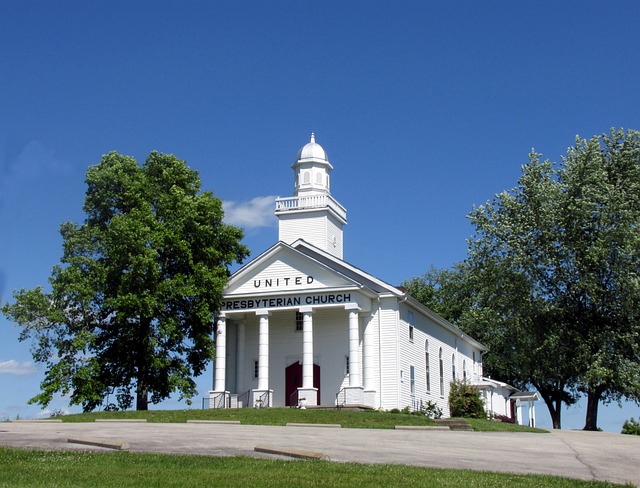Presbyterians, as a Christian denomination, generally observe and believe in the significance of Good Friday.
Table of Contents
The Significance of Good Friday in Presbyterian Theology
Do Presbyterians believe in Good Friday? This is a question that often comes up when discussing the significance of Good Friday in Presbyterian theology. Good Friday is a day that holds great importance in the Christian faith, as it commemorates the crucifixion of Jesus Christ and his ultimate sacrifice for the sins of humanity. While the observance of Good Friday may vary among different Christian denominations, it is safe to say that Presbyterians do indeed recognize and honor this solemn day.
In Presbyterian theology, Good Friday is seen as a crucial part of the Easter story. It is a time for reflection and contemplation on the suffering and death of Jesus Christ. Presbyterians believe that Jesus willingly gave up his life on the cross to redeem humanity from sin and reconcile them with God. This act of selfless love is at the core of their faith, and Good Friday serves as a reminder of this profound sacrifice.
During Good Friday services, Presbyterians engage in various practices and rituals that help them connect with the significance of the day. These may include readings from the Bible, prayers, hymns, and the observance of the Lord’s Supper or Communion. The focus is on remembering and acknowledging the immense suffering that Jesus endured for the sake of humanity’s salvation.
One of the key aspects of Presbyterian theology is the belief in the sovereignty of God. Presbyterians believe that God is in control of all things and that everything happens according to His divine plan. This belief extends to the crucifixion of Jesus on Good Friday. Presbyterians see the crucifixion as part of God’s redemptive plan for humanity, a necessary step in the process of salvation.
While Good Friday is a somber and reflective day, it is also seen as a precursor to the joyous celebration of Easter Sunday. Presbyterians believe in the resurrection of Jesus Christ, which is the cornerstone of their faith. The crucifixion on Good Friday is inseparable from the resurrection on Easter Sunday, as it represents the victory of life over death and the hope of eternal salvation.
In Presbyterian theology, the observance of Good Friday is not limited to a single day. It is a continuous reminder of the sacrifice of Jesus and the ongoing work of redemption. Presbyterians strive to live out the teachings of Jesus and follow his example of selflessness and love. Good Friday serves as a constant reminder of the call to live a life of faith and service to others.
In conclusion, Presbyterians do believe in Good Friday and recognize its significance in their theology. It is a day of reflection, remembrance, and gratitude for the sacrifice of Jesus Christ. Good Friday holds a special place in Presbyterian worship and serves as a reminder of the immense love and grace of God. As Presbyterians observe this solemn day, they are reminded of the hope and joy that comes with the resurrection on Easter Sunday.
Exploring the Role of Good Friday in Presbyterian Worship

Do Presbyterians believe in Good Friday? This is a question that often comes up when discussing the role of Good Friday in Presbyterian worship. Good Friday is a significant day in the Christian calendar, commemorating the crucifixion of Jesus Christ. It is a time for reflection, repentance, and gratitude for the sacrifice that Jesus made for humanity. While Good Friday is widely observed by many Christian denominations, the specific practices and beliefs surrounding this day can vary.
In the Presbyterian tradition, Good Friday holds a special place in worship and spiritual reflection. It is a time for Presbyterians to remember and meditate on the suffering and death of Jesus Christ. The focus is on the redemptive power of Christ’s sacrifice and the hope it brings to believers. Good Friday services in Presbyterian churches often include scripture readings, hymns, prayers, and a sermon that explores the significance of Jesus’ crucifixion.
One of the key beliefs of Presbyterians is the concept of grace. They believe that salvation is a gift from God, given freely to all who believe in Jesus Christ. Good Friday serves as a reminder of this grace, as it was through Jesus’ death on the cross that believers are reconciled with God. Presbyterians see Good Friday as a time to reflect on their own sinfulness and the need for God’s forgiveness. It is a time to humble themselves before God and seek His mercy.
Another important aspect of Good Friday in Presbyterian worship is the emphasis on the communal nature of faith. Presbyterians believe in the importance of the church community and the role it plays in the spiritual journey of its members. Good Friday is a time for Presbyterians to come together as a community to remember and mourn the death of Jesus. It is a time to support and uplift one another, as they reflect on the significance of Jesus’ sacrifice and the hope it brings.
While Good Friday is a solemn and reflective day, it is also a time of hope for Presbyterians. They believe that Jesus’ death on the cross was not the end, but rather the beginning of a new life. Good Friday is a precursor to Easter Sunday, when Christians celebrate the resurrection of Jesus and the victory over sin and death. Presbyterians see Good Friday as a necessary step in the journey towards Easter, a time to fully appreciate the joy and hope that comes with the resurrection.
In conclusion, Presbyterians do believe in Good Friday and its significance in their worship. It is a time for reflection, repentance, and gratitude for the sacrifice of Jesus Christ. Good Friday services in Presbyterian churches are marked by scripture readings, hymns, prayers, and sermons that explore the redemptive power of Christ’s death. It is a time for Presbyterians to come together as a community, supporting and uplifting one another as they reflect on the significance of Jesus’ sacrifice. Good Friday is a solemn day, but it is also a time of hope, as it leads to the celebration of Easter and the victory over sin and death.
Understanding the Presbyterian Perspective on the Crucifixion
Do Presbyterians believe in Good Friday? This is a question that often comes up when discussing the Presbyterian perspective on the crucifixion. To understand their viewpoint, it is important to delve into the core beliefs and teachings of the Presbyterian faith.
Presbyterians, like many other Christian denominations, hold the crucifixion of Jesus Christ as a central event in their theology. They believe that Jesus willingly sacrificed himself on the cross to atone for the sins of humanity. This act of selflessness and love is seen as the ultimate expression of God’s grace and mercy.
However, when it comes to the specific observance of Good Friday, Presbyterians may have a slightly different approach compared to other Christian traditions. Good Friday is traditionally observed as a day of solemn remembrance and reflection on the crucifixion. Many churches hold special services and liturgies to commemorate this event.
In the Presbyterian tradition, the focus is more on the overall significance of the crucifixion rather than a specific day of observance. While they acknowledge the importance of Good Friday, Presbyterians emphasize the ongoing impact of Christ’s sacrifice in their daily lives. They believe that every day should be a reminder of the crucifixion and its transformative power.
This perspective is rooted in the Presbyterian understanding of salvation. Presbyterians believe in the concept of “justification by faith,” which means that individuals are saved through their faith in Jesus Christ rather than through their own works or observances. They believe that salvation is a gift from God, made possible through Christ’s sacrifice on the cross.
For Presbyterians, the crucifixion is not just a historical event but a present reality. They believe that through faith in Christ, believers are united with him in his death and resurrection. This union with Christ is seen as the source of new life and transformation.
In light of this understanding, Presbyterians may not place as much emphasis on the specific observance of Good Friday. Instead, they strive to live out the implications of the crucifixion every day. They seek to embody the love, grace, and selflessness that Christ demonstrated on the cross.
This does not mean that Presbyterians disregard Good Friday or fail to recognize its significance. Many Presbyterian churches still hold special services on this day, focusing on the passion and sacrifice of Christ. However, their approach is more holistic, encompassing the entire Christian journey rather than a single day of observance.
In conclusion, while Presbyterians believe in the crucifixion of Jesus Christ and its central role in their faith, their perspective on Good Friday may differ from other Christian traditions. They emphasize the ongoing impact of the crucifixion in their daily lives, rather than a specific day of observance. For Presbyterians, every day is an opportunity to remember and live out the transformative power of Christ’s sacrifice.
How Good Friday Reflects Presbyterian Beliefs about Salvation
Good Friday is a significant day in the Christian calendar, commemorating the crucifixion of Jesus Christ. It is a time for reflection, repentance, and gratitude for the sacrifice made by Jesus for the salvation of humanity. While Good Friday holds great importance for many Christian denominations, you may wonder if Presbyterians also believe in the significance of this day.
Presbyterians, like other Christians, believe in the core tenets of the Christian faith, including the crucifixion and resurrection of Jesus Christ. They hold that Jesus willingly gave up his life on the cross as a sacrifice for the sins of humanity. Therefore, it is safe to say that Presbyterians do believe in the significance of Good Friday.
The Presbyterian Church has a rich history and tradition that shapes its beliefs and practices. One of the key aspects of Presbyterian theology is the concept of salvation through faith alone. Presbyterians believe that salvation is a gift from God, and it cannot be earned through good works or personal merit. Instead, they emphasize the importance of faith in Jesus Christ as the means of salvation.
Good Friday is a powerful reminder of the depth of God’s love and the extent to which he was willing to go to redeem humanity. Presbyterians see the crucifixion as the ultimate act of love and sacrifice, demonstrating God’s grace and mercy. It is through Jesus’ death on the cross that believers are reconciled with God and offered the gift of eternal life.
In Presbyterian churches, Good Friday is observed with solemnity and reverence. Worship services often include readings from the Bible, prayers, hymns, and reflections on the crucifixion. The focus is on the suffering and sacrifice of Jesus, as well as the hope and promise of resurrection that follows.
While Presbyterians believe in the significance of Good Friday, they also emphasize the importance of the entire Easter story. For them, Good Friday is not an isolated event but part of a larger narrative that includes Jesus’ resurrection on Easter Sunday. The resurrection is seen as the ultimate victory over sin and death, affirming the hope and promise of new life in Christ.
Presbyterians also believe in the power of the Holy Spirit, who enables believers to live out their faith and grow in their relationship with God. The Holy Spirit is seen as the one who empowers and guides believers in their journey of faith, helping them to understand and apply the teachings of Jesus.
In conclusion, Presbyterians do believe in the significance of Good Friday. It is a day that reflects their beliefs about salvation through faith in Jesus Christ. Good Friday serves as a reminder of God’s love, grace, and mercy, as well as the hope and promise of resurrection. It is a time for Presbyterians to reflect on the sacrifice made by Jesus and to express gratitude for the gift of salvation.
Conclusion
Yes, Presbyterians believe in Good Friday as an important observance in the Christian faith.


